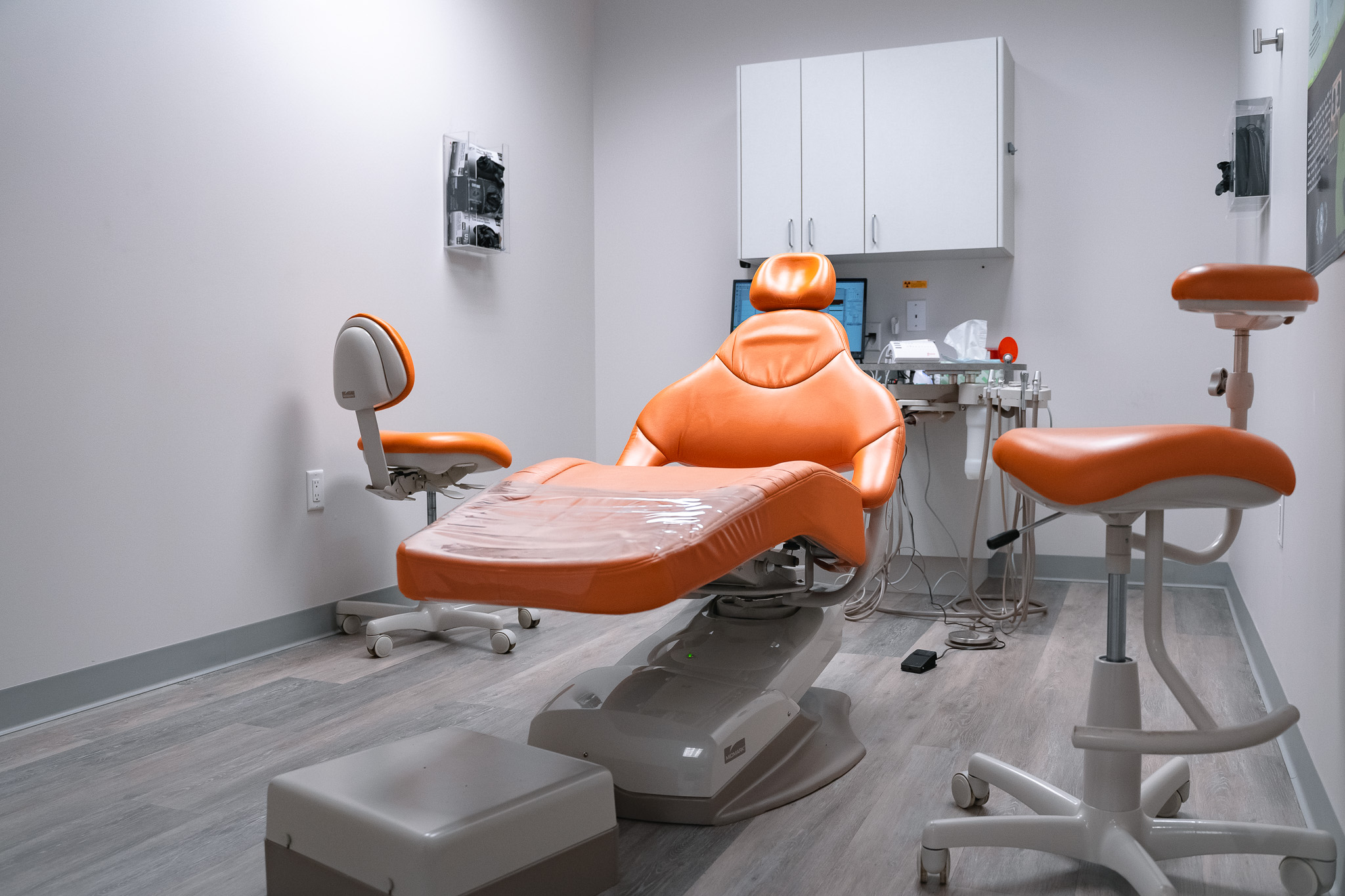Can You Whiten Teeth at Home or Should You See a Dentist?

When it comes to achieving a brighter, whiter smile, you generally have two main paths: at-home cosmetic teeth whitening or professional whitening through your dentist. Both methods aim to remove stains and discoloration, but they differ in effectiveness, safety, cost, and longevity.
At-home whitening typically includes over-the-counter products like whitening strips, gels, toothpaste, and LED kits. These products use low concentrations of bleaching agents such as hydrogen peroxide or carbamide peroxide. While some users report moderate success with these products, their impact is often limited, especially for deep-set stains caused by aging, certain foods, or medications.
On the other hand, professional cosmetic teeth whitening treatments performed by a dentist use stronger bleaching agents, customized trays, and even laser technology. The results are usually faster and more noticeable, often brightening teeth by several shades in a single session.
How Effective Are At-Home Whitening Products?
At-home whitening kits have become increasingly popular because they are affordable and convenient. Whitening strips, for example, are easy to apply and can show results within a week or two. Whitening toothpaste can help maintain the results of professional whitening but often lacks the strength to make significant changes on its own.
However, the biggest limitation of these products is their uneven results. Since over-the-counter kits are not tailored to your specific teeth shape or dental condition, the whitening effect may appear patchy. People with dental restorations, such as crowns or veneers, may also notice a mismatch in tooth color after using these products.
Moreover, if you suffer from teeth grinding (also known as bruxism), using over-the-counter whitening products can exacerbate sensitivity. In such cases, a dental consultation is advisable, as combining teeth grinding treatment with cosmetic teeth whitening requires professional oversight to avoid damaging the enamel further.
What Are the Advantages of In-Office Cosmetic Teeth Whitening?
Seeing a dentist for cosmetic teeth whitening has multiple benefits. Firstly, professional whitening treatments use a much higher concentration of bleaching agents. This leads to quicker, more uniform results. A dentist can customize the treatment based on your unique dental structure and shade preferences.
Secondly, professional whitening is safer. Your dentist will examine your mouth to ensure there are no underlying issues such as cavities, gum disease, or enamel erosion. These problems can worsen if exposed to whitening chemicals. Also, dentists use protective barriers to prevent gum irritation or tooth sensitivity during the procedure.
Another benefit is long-lasting results. Professional whitening can last up to three years with proper maintenance, whereas at-home kits may require monthly touch-ups.
Lastly, if you’re undergoing teeth grinding treatment, your dentist can adjust the whitening plan accordingly. For example, they may recommend using whitening trays that double as night guards, offering a dual-purpose solution.
Are There Any Risks to At-Home Whitening?
While many over-the-counter products are marketed as safe, they are not free from risks. One of the most common side effects is tooth sensitivity. Excessive use or improper application can strip away the enamel, exposing the underlying dentin layer and causing discomfort.
Another concern is gum irritation. Whitening gels can leak out of ill-fitting trays and irritate the soft tissues of the mouth. In severe cases, chemical burns may occur.
Users who suffer from bruxism or teeth grinding are at greater risk. Continuous grinding can already thin the enamel. Adding a whitening agent into the mix can accelerate enamel wear, leading to increased tooth sensitivity and even micro-cracks.
Before starting any at-home whitening regimen, it’s essential to speak with a dentist—especially if you’re also receiving teeth grinding treatment. They can recommend products that are safe for your dental condition or suggest a customized professional treatment plan.
What Role Does Diet and Lifestyle Play in Whitening Results?
Your lifestyle and dietary habits significantly impact the effectiveness of any cosmetic teeth whitening treatment. Foods and beverages like coffee, tea, red wine, and berries can stain your teeth over time. Smoking is another major culprit that leads to yellowing and discoloration.
If you’ve invested in whitening your teeth, maintaining your results should be a priority. Dentists often recommend avoiding staining foods and drinks for at least 48 hours after a whitening session. Using a straw for beverages and brushing immediately after eating can help prolong your results.
In addition, teeth grinding can lead to uneven enamel wear, which may make your teeth appear discolored or aged. Addressing this issue with a proper teeth grinding treatment—such as a night guard or bite adjustment—can enhance both the appearance and health of your smile.
How Do You Know If You’re a Good Candidate for Whitening?
Not everyone is an ideal candidate for whitening. If you have gum disease, exposed roots, worn enamel, or untreated cavities, whitening procedures—especially at-home ones—can do more harm than good.
Professional evaluation is key. Your dentist will assess the condition of your teeth and gums before recommending a whitening option. If you have teeth grinding issues, this will be taken into consideration. The dentist may suggest treating the bruxism first to protect the enamel before proceeding with cosmetic teeth whitening.
Pregnant or nursing women, children under 16, and individuals with severe sensitivity should avoid whitening treatments unless advised otherwise by a healthcare professional.
What Is the Cost Difference Between Home and Professional Whitening?
Cost is often a deciding factor. At-home whitening kits can range from $20 to $100, depending on the brand and features. They are more budget-friendly but may require frequent reapplication to maintain results.
In-office cosmetic teeth whitening is more expensive, typically ranging from $300 to $1,000 per session. However, the results are faster, more consistent, and longer-lasting. When viewed as an investment in both appearance and oral health, many patients find the cost worthwhile.
Furthermore, combining whitening with teeth grinding treatment in a dental clinic allows for a more holistic approach to your oral care, potentially saving money on future dental problems caused by enamel damage or tooth wear.
Final Thoughts: Should You Whiten at Home or See a Dentist?
The decision between at-home and professional cosmetic teeth whitening ultimately comes down to your dental health, budget, and goals. At-home products can offer minor improvements for people with healthy teeth and minimal staining. However, if you seek noticeable, safe, and lasting results—or have underlying issues like teeth grinding—a visit to the dentist is the smarter choice.
Teeth whitening isn’t just about aesthetics; it’s about maintaining your overall dental health. Your dentist can create a customized treatment plan that factors in whitening goals, tooth sensitivity, and coexisting conditions like bruxism.
For the brightest, healthiest smile, it’s wise to consult your dentist and explore all your options. When done correctly and under professional guidance, cosmetic teeth whitening can dramatically enhance your confidence and oral well-being—while protecting your teeth from long-term damage.



